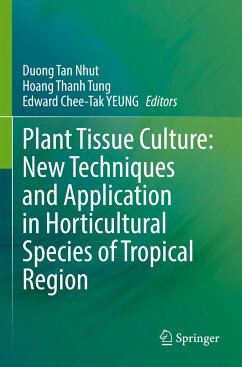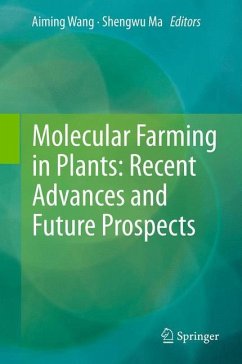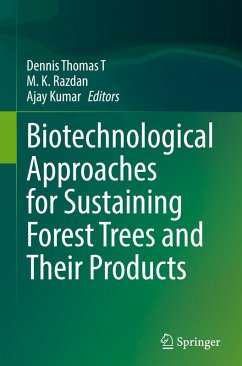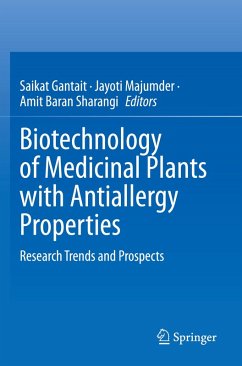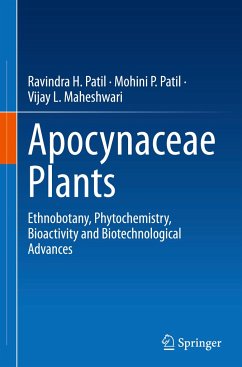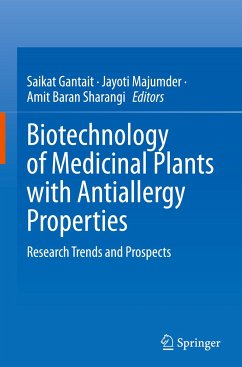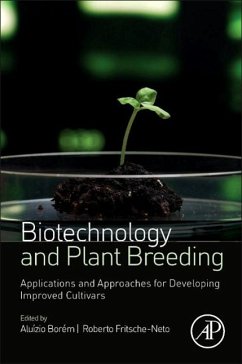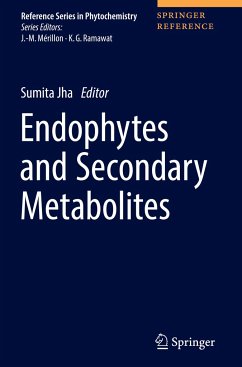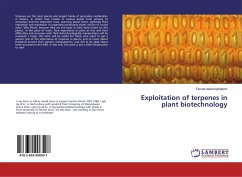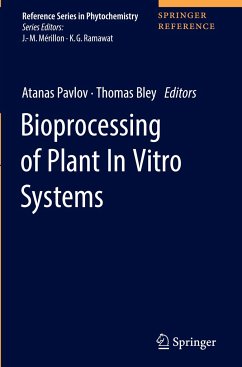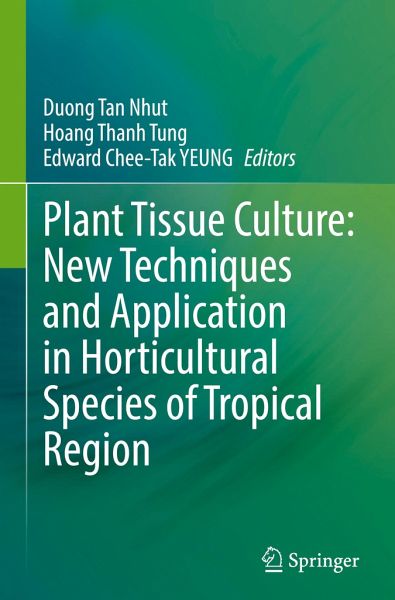
Plant Tissue Culture: New Techniques and Application in Horticultural Species of Tropical Region

PAYBACK Punkte
76 °P sammeln!
This book presents latest work in the field of plant biotechnology regarding high-efficiency micropropagation for commercial exploitation at low labor and equipment costs. The book consists of 18 chapters on establishing advanced culture systems, techniques as well as latest modification protocols on a variety of crops. It also discusses new methods such as nylon film culture system, light-emitting diode and wireless light-emitting diode system, stem elongation, wounding manipulation and shoot tip removal, in vitro hydroponic and microponic culture system, thin cell layer culture system etc. P...
This book presents latest work in the field of plant biotechnology regarding high-efficiency micropropagation for commercial exploitation at low labor and equipment costs. The book consists of 18 chapters on establishing advanced culture systems, techniques as well as latest modification protocols on a variety of crops. It also discusses new methods such as nylon film culture system, light-emitting diode and wireless light-emitting diode system, stem elongation, wounding manipulation and shoot tip removal, in vitro hydroponic and microponic culture system, thin cell layer culture system etc. Plant cell tissue has been developed more than fifty years ago. Since then applications of in vitro plant propagation expanded rapidly all around the world and played as an important role in agricultural and horticultural systems.
This book will be of interest to teachers, researchers, scientists, capacity builders and policymakers. Also the book servesas additional reading material for undergraduate and graduate students of agriculture, forestry, ecology, soil science, and environmental sciences.
This book will be of interest to teachers, researchers, scientists, capacity builders and policymakers. Also the book servesas additional reading material for undergraduate and graduate students of agriculture, forestry, ecology, soil science, and environmental sciences.





